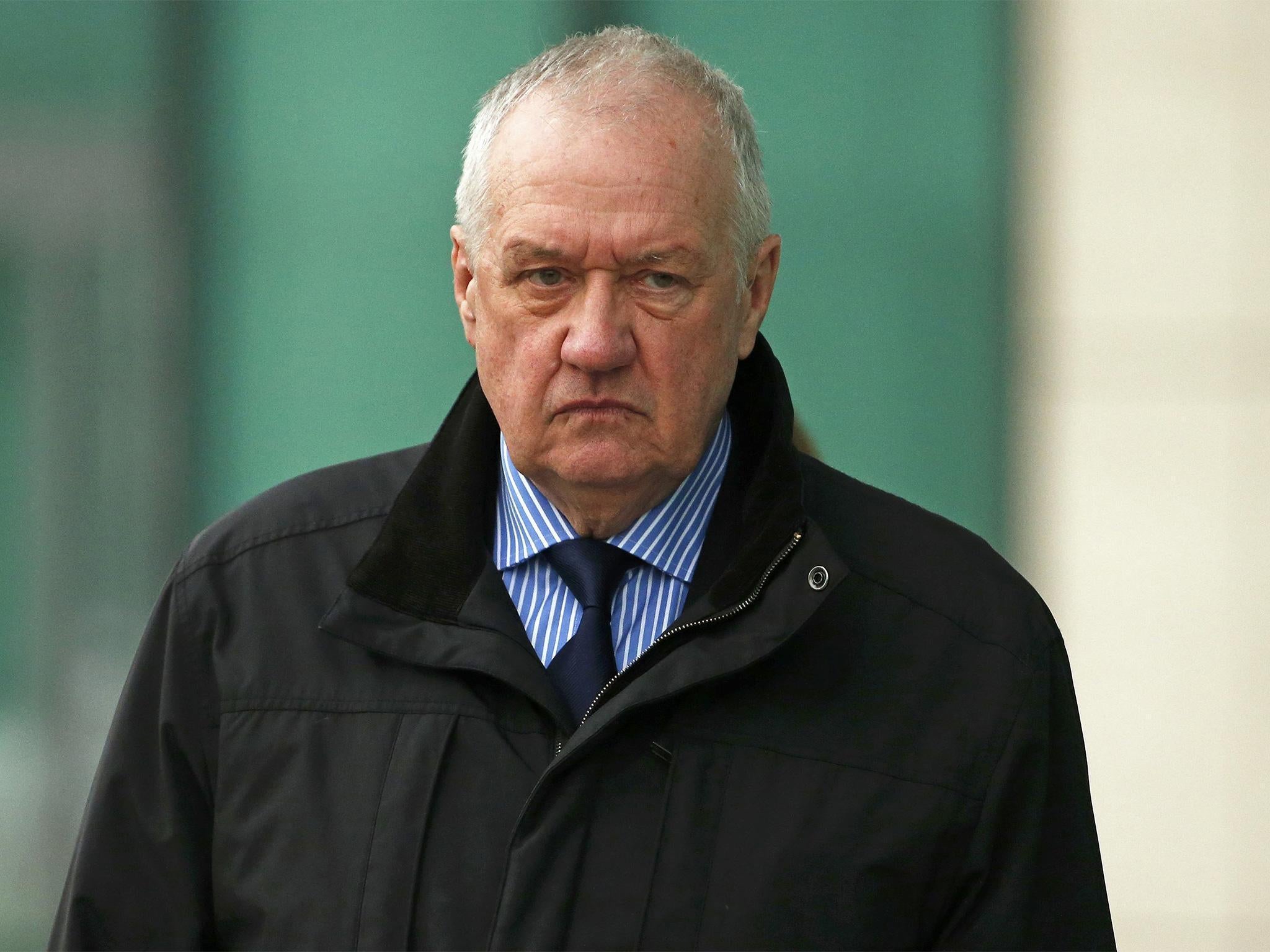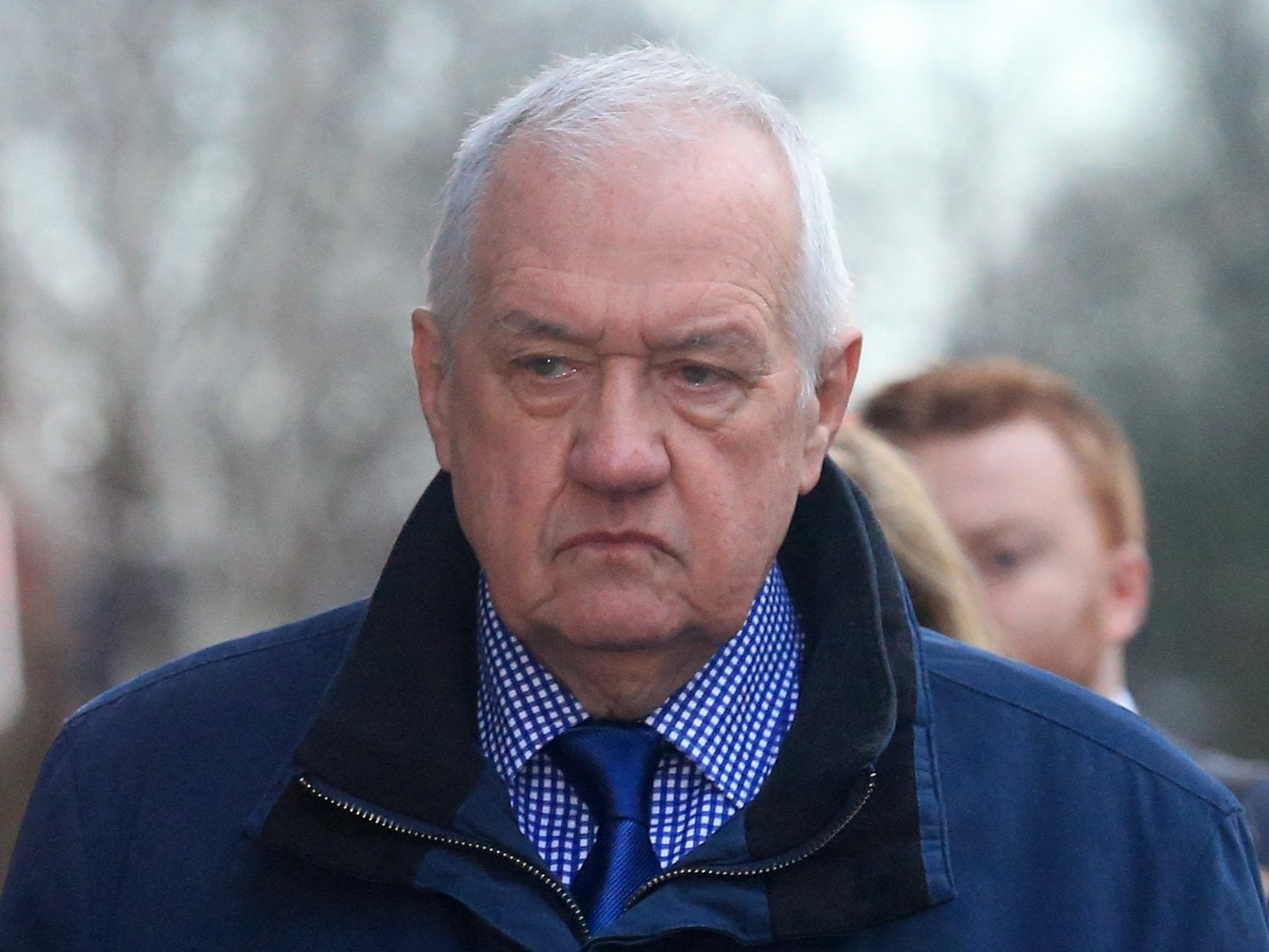Hillsborough trial: David Duckenfield 'unfairly singled out' for manslaughter prosecution, defence claims
Prosecution says match commander's 'extraordinarily bad' series of failings led to fatal crush

David Duckenfield has been “unfairly singled out” for prosecution over the Hillsborough disaster, his defence lawyer has claimed.
The match commander “was not equipped with special powers to anticipate things that everybody else didn’t,” Benjamin Myers QC told a jury at Preston Crown Court.
He added: “It can hardly be fair to judge Mr Duckenfield by different standards from everyone else.
“The prosecution are blaming him for ... events that can’t be attributed to the fault of any persons in particular.
“What happened on 15 April 1989 was brought about by a combination of factors great and small, some with their roots in events years before and some that emerged in the hours and minutes before disaster struck.”
The prosecution had previously told the court that Mr Duckenfield’s “extraordinarily bad” failings as match commander was a substantial cause of the deaths.
Richard Matthews QC said it “required no hindsight” to realise the risk of a fatal crush in fenced pens at the Leppings Lane end of Hillsborough stadium.
Mr Duckenfield did not consider the consequences of an influx of thousands of Liverpool fans down a tunnel into the already overcrowded pens when he ordered a large gate to be opened to ease a separate crush outside the stadium, the court heard.
Prosecutors said he then failed to take action as the disaster was unfolding, with survivors and witnesses recalling how they shouted at police officers for help, and to be let out, but got no repsonse.
Excerpts of statements from officers were read showing that they were operating without orders from Mr Duckenfield, or the police control box, to try to manage crowds at the Leppings Lane end.
Even as the victims were being crushed to death, police communications played to the court suggested that some officers believed the incident to be a pitch invasion and responded accordingly.
When the match was stopped at 3.05pm, police triggered operation support, which was not a safety operation but a “contingency plan to deal with spontaneous disorder”.
Mr Matthews said: “No matter who else could have done better, done more, done things differently, Mr Duckenfield’s failures continued.
“Each flowed from his own decision making and fell squarely within his personal responsibility as match commander.
“Ultimately Mr Duckenfield failed in the most appalling manner to monitor what was happening in pens three and four, and to prevent or avert the inevitable consequence of the flow of many spectators into the central tunnel, crushing the life out of so many people.”
But speaking later on Thursday, Mr Myers told the jury a combination of factors “came together in catastrophic fashion … and to single out David Duckenfield is artificial and unfair”.
The defence lawyer said that the fencing that contributed to the disaster was common at football stadiums in the 1980s and that safety risks that may seem obvious now “were a fact of life in 1989”.
Mr Myers asked the jury to “keep in mind the danger of hindsight, the historical context and the possible unfairness of applying unreasonable standards to Mr Duckenfield from what is expected for others”.
Mr Myers pointed out that the prosecution has accepted that other people are at fault “but they are not accusing them of gross negligence manslaughter”.
He added: “You may be wondering how it can be fair to single out one man for prosecution when there are so many other people at fault – so are we. Looking back now, there may be things that could be done differently or better, and the same can be said for a good many people.”

Mr Myers said his client believes he was not negligent and “did his best”, and that “bad stadium design, bad planning, some aspects of crowd behaviour, some of police behaviour, and genuine human error” contributed to the disaster.
He reminded the jury that Mr Duckenfield is not representing South Yorkshire Police or any other agency, adding: “Our sympathy for others can never be a reason to convict another for events beyond his control or repsonsiblity.”
Mr Duckenfield, now 74, denies manslaughter by gross negligence of 95 victims.
There can be no prosecution over the death of the 96th victim, Tony Bland, as he died more than a year and a day after his injuries were caused.
Graham Mackrell, Sheffield Wednesday’s former club secretary, denies health and safety offences.
The trial continues.
Read our live coverage below:
Please allow a moment for the live blog to load
Shortly before 3pm, a roving police camera captures a female police officer opening the gate to pen 1 as Liverpool fans are visible on the perimiter track
Mr Matthews says one of the Liverpool fans at the match, Colin Moneypenny, described "complete chaos" at Leppings Lane and entered through Gate C at around 2.52pm
"There was no attempt by police officers to filter the crowd or act as a break before passing through Gate C. He will describe how there seemed to be no organisation whatsoever. "
Mr Moneypenny said that two thirds of his way down the tunnel "he was lifted off his feet by the sheer volume of fans around him and carried forward 100 or 200 feet", accellerating because of the slope
Mr Matthews said he was carried to the front pen 3 and felt "a body underneath one of his feet" but could not move.
"There was intense pressure around him. Because he was tall he could breathe normally. He could turn his head and scream and shout," for 15 minutes, when the pressure eased.
"His experience was one, in his words, of just shouting and screaming and trying to get people to help with absolutely no effect for virtually the whole of that period. He was facing forward. He could see police officers on the other side of the perimeter fence. He said they were doing absolutely nothing."
Mr Moneypenny said police officers "did not seem to recognise what the problem was" and when he finally got back out through the tunnel, he found that "some officers were oblivious to what had happened"
Stephen Allen, an off-duty Metropolitan police officer, went into pen 3 at 2.55pm and pushed down the terrace as the crowd "becoming more and more distressed"
He said he remembered people passing people out as around a dozen people climbed over the fence, and he was pinned againstw a crush barrier. Two people were on the floor in front of him but he couldn't control his movements and tried to shout police officers saying "people were dying, let people outt" and tried to show them his warrant card
Mr Matthews says Mr Allen recaleld a "scene of horror" with a pile of bodies and semi-conscious people with bodies on top of them, who had fallen backwards as the crowd eased
His impression was that the gate was not opened until the match was called off. His impression was that a lot of the police were possibly in shock.
Colin Allen, no relation to Stephen, was another off duty police constable who said the mood among Liverpool fans was good and theree no signs of alcohol or drunkenness.
He was directed to gate C by a mounted police officer and went into pen 3, being spun around twice as the pressure worsened and passing out
Iain Crawford also went through gate C and arrived in pen 3 at 2.55pm to 3 pm and was pushed forward without control.
Mr Matthews says: "His arms became pinned across his chest. He was concerned that his spectacles in his left hand breast pocket might break and pierce his heart or lung. It became obvious at one point somebody was underneath his feet. It was impossible to help."
Mr Crawford remembers police officers shouting to push back but people were shouting to open the gate, saying: "Please let us out."
Mr Crawford was trampled after falling across the front gate when it was opened, while pleading for help. He was removed on a stretcher
Raymond Evans, a serving Merseyside police officer, went through the tunnel to pen 3 without direction and remembered being shocked at how busy it was when so many people were still outside
"He was pushed to the front of the pen, as if on roller skates, he will describe. He came to a sort of halt quite near the front of the terrace," Mr Matthews said.
Mr Evans was trampled and suffered broken ribs
